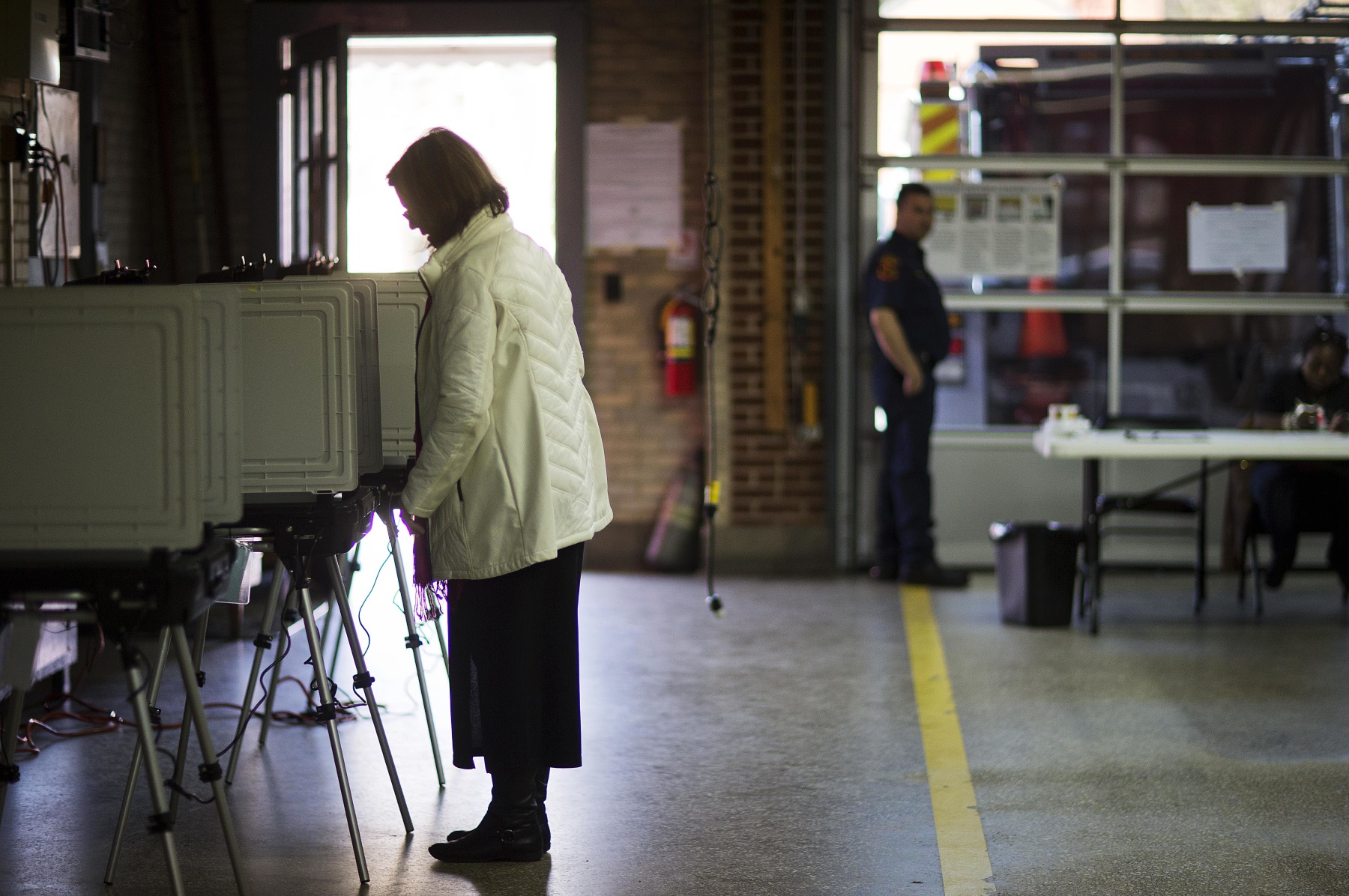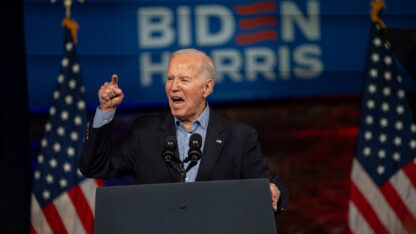Ga. Campaigns Prepare For Potential Russian Interference In 2018 Elections

In Georgia, congressional and statewide campaigns are taking steps to prevent possible hacking attempts and social media offensives ahead of the 2018 midterms.
David Goldman / Associated Press file
As more details emerge about how Russian efforts to influence the 2016 elections touched Georgia, congressional and statewide campaigns said they’re readying themselves for hacking attempts and social media offensives top U.S. intelligence officials have warned about ahead of the 2018 midterms.
“[The Russians] have been willing to get involved in the nitty-gritty of American politics to a degree that we’ve never really seen before,” said Claire Finkelstein, a professor of law and philosophy at the University of Pennsylvania Law School, who has researched national security issues.
“It’s really rather extraordinary how detailed the covert influence campaign has been,” Finkelstein said.
In November 2014, a “co-conspirator” visited Atlanta for four days, according to a recent grand jury indictment of Russian nationals resulting from special counsel Robert Mueller’s investigation into interference in the 2016 presidential campaign.
Records posted by NBC News show alleged Russian-backed Twitter bots made Georgia-related posts in 2016.
As Seth Clark watches all of this, he said he gets unsettled and frustrated. Clark is a spokesperson for Democrat Stacey Evans’ campaign for governor.
“We’ve diverted a significant amount of our internal resources to monitor … for a potential parroting of what happened in 2016 on social media,” said Clark. “It’s unfortunate that we have to do that, but it’s just kind of a reality in today’s political climate.”
Clark said the Evans campaign has hired an IT firm to monitor its email traffic and look for potential phishing.
“We’ve required all of our staff to password protect their devices. We’ve required our staff to set up double-verification for all their social media,” he said.
Some Democratic congressional campaigns described taking similar steps.
“We’re doing everything we can on our end with rigorous password management, two-factor authentication, and monitoring our social media channels for suspicious and abusive accounts,” said Liz Ernst, campaign manager for David Kim, one of a few Democrats challenging Republican Rob Woodall in Georgia’s 7th Congressional District. “Any activity on a campaign that requires more diligence does require more energy and resources to be spent, but we have factored this into our plans in light of current events.”
Woodall’s campaign did not respond to requests for comment.
The campaign for Democratic candidate for governor Stacey Abrams said it was also taking precautions but did not provide specifics.
“Our campaign takes IT security very seriously. We have fully committed to implementing systems and protocols — both for our campaign and the state of Georgia — that protect the integrity of our elections,” said Priyanka Mantha, director of communications for Abrams’ campaign.
The campaign of Casey Cagle, who is running for governor, was one of two Republican campaigns that responded to WABE’s request for details about its preparations for potential Russian interference.
“In this day and age, cybersecurity is an issue for everyone,” said campaign manager Scott Binkley. “We don’t plan to discuss our internal protocol for handling matters of security.”
The campaign of Republican candidate for governor Clay Tippens responded to WABE’s requests for comment but did not provide any information about the campaign’s preparations for potential interference in the upcoming election.
Georgia’s midterm election contests aren’t likely to draw lots of national attention, but campaigns should still be worried, Finkelstein said, because the Russians are willing to get involved in even minor aspects of American politics.
“A congressional race is not at all too detailed for the Russians,” said Finkelstein, “because they’re very well aware that the House of Representatives hangs in the balance.”
Finkelstein said she expects the Russians were more involved in local and state elections than we know now.
How other Georgia campaigns are preparing for outside interference:
“Using complex passwords, two-factor authentication, and knowing what to look for in phishing attempts are just some of the small things we are conscious of and practice when using the internet and digital communications. An individual campaign with a small staff like ours is not adequately equipped to address large-scale hacking attempts or significant voter integrity issues, but we can make ourselves less vulnerable to outside interference by using established cyber security best practices and having a disciplined online presence.” — Charlie Blaettler, campaign manager for Kevin Abel, Democratic candidate for Georgia’s 6th Congressional District
“Like all Democratic campaigns, we recognize the threat of cyber-attacks and aren’t at liberty to discuss our security practices.” — Peter Dougherty, campaign manager for Bobby Kaple, Democratic candidate for Georgia’s 6th Congressional District.
Republican Karen Handel’s re-election campaign for the 6th Congressional District did not respond to WABE’s requests for comment.








